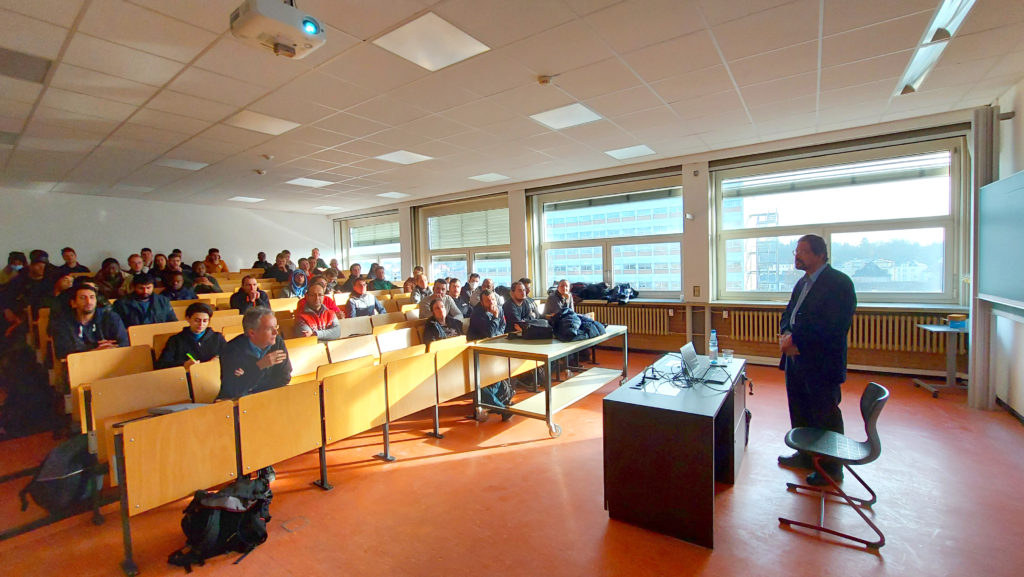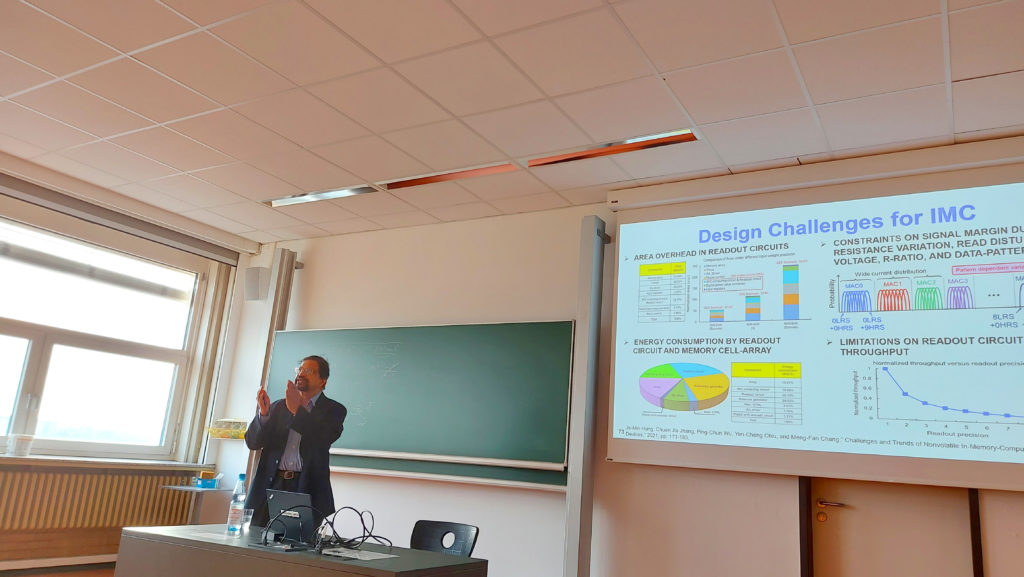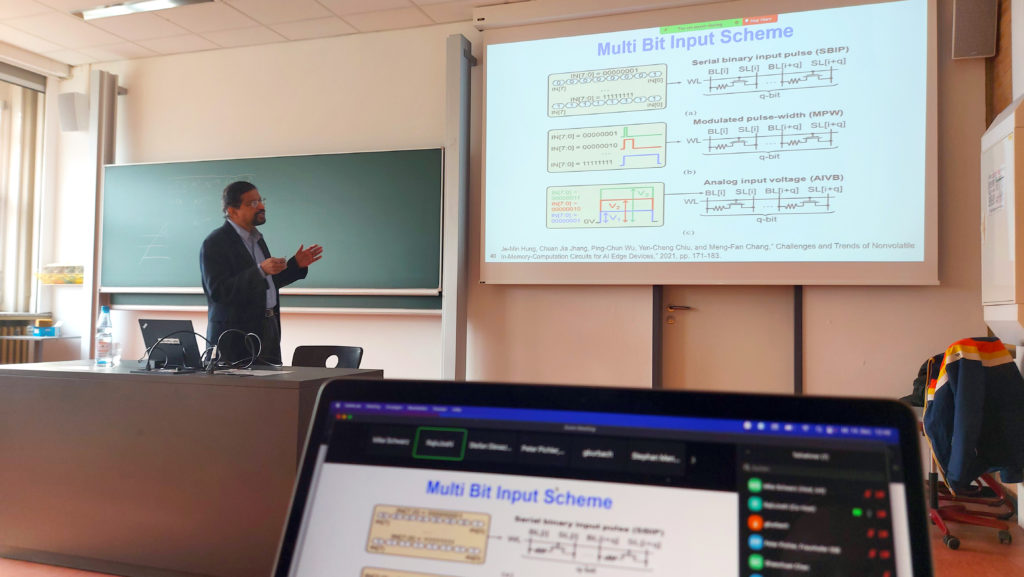Rajiv Joshi presented “Memories from Storage to Computing”
The EDS Germany Chapter organized a hybrid distinguished lecture entitled “Memories from Storage to Computing” on December 14, 2022. The lecture was given by Dr. Rajiv Joshi from IBM – T. J. Watson Research Center, IEEE Fellow, and was organized by Prof. Alexander Kloes and Prof. Mike Schwarz from the Competence Center for Nanotechnology and Photonics (NanoP) of THM – University of Applied Sciences, Germany. The DL was attended by 17 IEEE participants, as well as 43 non IEEE members onsite and via Zoom videoconference system.

After a welcome from Prof. Schwarz, Dr. Joshi stepped directly into the subject of memories. A comprehensive introduction with the essential basics was part of the first minutes of the DL. The first semester’s students welcomed the context Dr. Joshi presented, and found many theoretical discussed topics of microcomputer technology lectures in practical applications.

Then the lecture concentrated on the brick wall of memories, focusing on the memory bandwidth wall. The outcome of the brick wall challenge, postulated back in the past by Dr. David Patterson, was that all components i.e. power wall, memory wall and ILP (instruction level parallelism) wall sum up. From that point of view the need and/or push for low Vmin was obvious during the following discussions. Finally, power dissipation and further attributes play a significant role in memories. Designers have to deal with all the attributes (non-volatility, high density, low power consumption, bit alterability, endurance, low cost, etc.) and there is always an engineering tradeoff and no holy grail for memories.

Dr. Joshi went through the topic of memory as storage and discussed SRAMs as storage and methods like boosting during read out to stabilize the cells. Afterwards, the impact of variability and considering this domain during designing was addressed. The demand on fast algorithms to explore the tails of statistical variability distributions is required to ensure high yields. After this part of the lecture Dr. Joshi changed the focus on “From Moore´s law to AI law”. Within this part various discussions on i.e. the explosion of alternative processing power (CPU à GPU à NPU) took place. Furthermore, deep learning and enhancing its performance was under consideration by considering building blocks of those and realize them in hardware to allow for computation with memory. Finally, non-volatile memory technologies were compared by experimental data and the design challenges of InMemory Computing (IMC) concluded an excellent distinguished lecture. This was finished by high level QnA after the lecture. The students particularly liked the conceptual presentation of the basics and the continuous increase in level up to the advanced topics. Finally, it was a very well mixture of low and advanced level topics.
